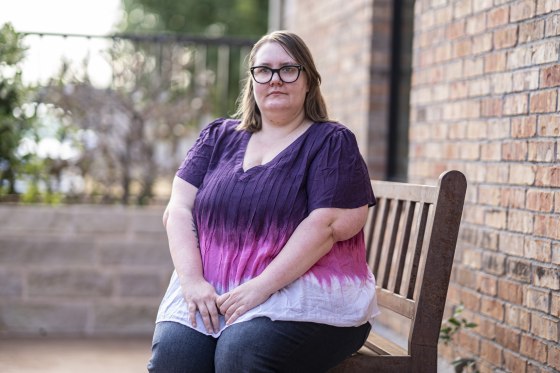Valerie Araujo spent her childhood in a state of unease, tiptoeing around the house, afraid that any misstep would cause her mother's boyfriend to lash out. It all came to a head one night when a neighbor called the police during one of his violent attacks.
The police officer arrested the boyfriend, who had attacked Araujo's mother, and he returned upon his release with flowers. Her mother sought help from the Noah Project, a domestic violence shelter with a 24/7 crisis line in Abilene, Texas, where they stayed for three months when Araujo was 10 years old. Her mother received counseling and help to file a protective order, so the family could return home.
Araujo, now 33, started working for Noah Project in December 2014, inspired by the work she saw them doing during her stay, and she is now the victim advocate and Child Protective Services liaison. She helps callers work through domestic violence situations like the one her mother experienced. But when the Covid-19 pandemic started, she said, the calls changed.
She used to get maybe two or three life-threatening calls a week, but when the pandemic started, the urgent calls came every day, multiple times a day. It’s been 18 months, and the calls haven’t let up.
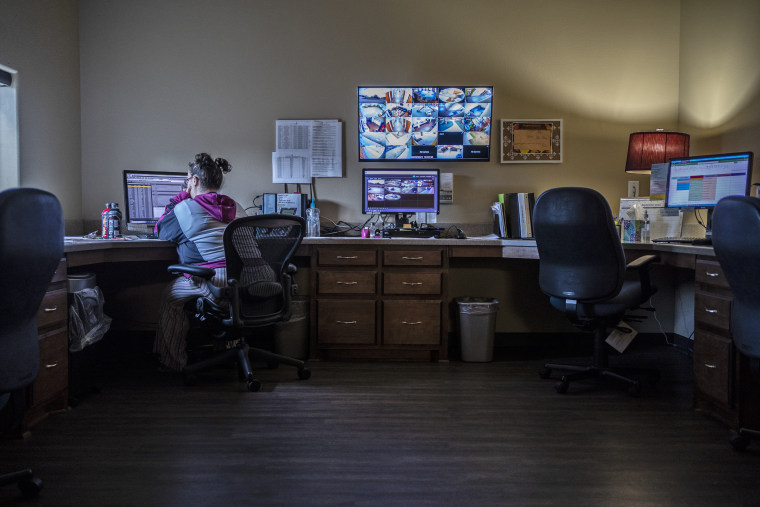
On a typical day, Araujo said, she’d receive two or three calls to the crisis line from people frantic for help and afraid for their lives after being attacked or receiving death threats with a gun or another weapon. She sometimes accompanied callers to the hospital, sitting with them as doctors examined their injuries for any potential long-term effects.
"I would go home, and I would just go to my husband, who would hold me, and I would cry just a little bit because some days it's really heavy," Araujo said. "I have to keep a strong front while I'm at work, keep my emotions in check. And then when I come home, I have to be able to let them out."
Araujo was not isolated in her experience: Staff members from local domestic violence organizations in Oregon, Maine, Kansas, Pennsylvania, Tennessee and the District of Columbia told NBC News they had also experienced increases in more urgent calls from people in life-threatening situations during the pandemic, often resulting in unmanageable stress levels and burnout for workers.
Leila Wood, a social work researcher and associate professor at the University of Texas Medical Branch, who has studied stress among direct service staffers who work with domestic violence survivors, said the stress direct service workers already feel in their high-impact jobs, compounded by the pandemic obstacles they might be facing like isolation and financial strain, could lead to long-term psychological and emotional challenges, like burnout or secondary traumatic stress. She explained that burnout looks like exhaustion, feeling checked out of work, depersonalization and "not seeing clients as dynamic people as much because you're just so exhausted and worn out." She said secondary traumatic stress can include symptoms like nightmares, flashbacks, constantly ruminating and worrying about clients' situations and "bringing work home."
"One thing that's important to remember is … for front-line advocates, they're interfacing with partners who are using violence, who are coming on-site, and there are real threats to safety, if you're working in an emergency shelter," Wood said. "So some of that anxiety is actually not secondary traumatic stress or burnout. It's real adaptive safety concerns."
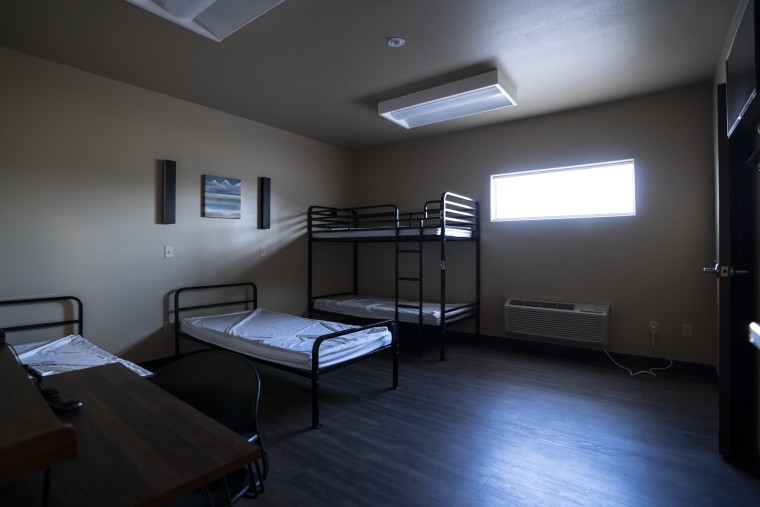
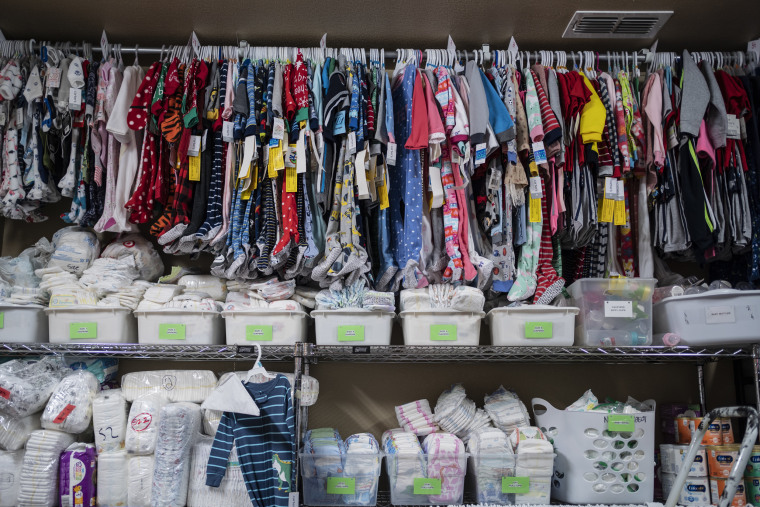
Wendy Arias, a customer service advocate at Aid to Victims of Domestic Abuse, said she was on "go, go, go mode for about three, four months" when the pandemic started, but when the increase in urgent, life-or-death calls continued with no apparent end, she began to feel the workload's toll, experiencing bouts of anxiety and fatigue that she categorized as burnout. She tried to unwind after work but couldn't get away from the overwhelming feelings.
"At first, I was like, 'Oh man, I'm just not getting good sleep,'" Arias said. "But the moment I started noticing the trend that it was happening long term, for weeks at a time, months, I was like, 'OK, this is something that is coming from something else.'"
AVDA is a nonprofit organization that provides free legal representation for domestic violence survivors in Texas. AVDA is not a crisis line, but Arias still fields calls from domestic violence survivors. She said she received maybe a couple of life-threatening calls per month before the pandemic, but she now receives them every day.
"Everybody in the world was going through the pandemic, including social workers and advocates, so it was kind of hard adjusting for your own personal life and adjusting for professional life," Arias said.
Wood conducted a study, published in December in the peer-reviewed Journal of Interpersonal Violence, that found 85 percent of survey respondents, who all work with domestic violence survivors, reported increased workplace stress related to the pandemic. The study also said burnout and secondary traumatic stress contribute to turnover in domestic violence organizations, which, Wood told NBC News, could affect client services.
Mikisha Hooper, who leads Texas Council on Family Violence's annual reporting on intimate partner homicides, said there was a 22 percent increase in all intimate partner fatalities in Texas from 2019 to 2020, partly attributing the increase to "the conditions of the pandemic," including isolation and economic stressors. With both crisis line calls and fatality rates rising, it makes coping more difficult for workers, often leading to feelings of personal responsibility.
In addition to the increase in life-or-death calls, crisis lines have had to go further during the pandemic. Peggy Whilde, the National Domestic Violence Hotline's director of staff support and well-being, said advocates recently reported feeling an increased sense of urgency, maybe leading to feelings of distress, because they started getting more calls from people with challenges unrelated to domestic violence.
"Advocates feel that the number of people reaching out are in much higher levels of crisis or are contacting us with non-intimate-partner-violence issues that involve psychotic symptoms, substance misuse and suicidal ideation because they don’t have other economic and mental health resources available to them,” Whilde said.
There is something organizations can do to help manage workers’ high stress levels: provide paid time off, encourage workers to take time off and provide adequate training and peer support, Wood said.
"Organizations can do a lot with little or no money to help advocates," Wood said.
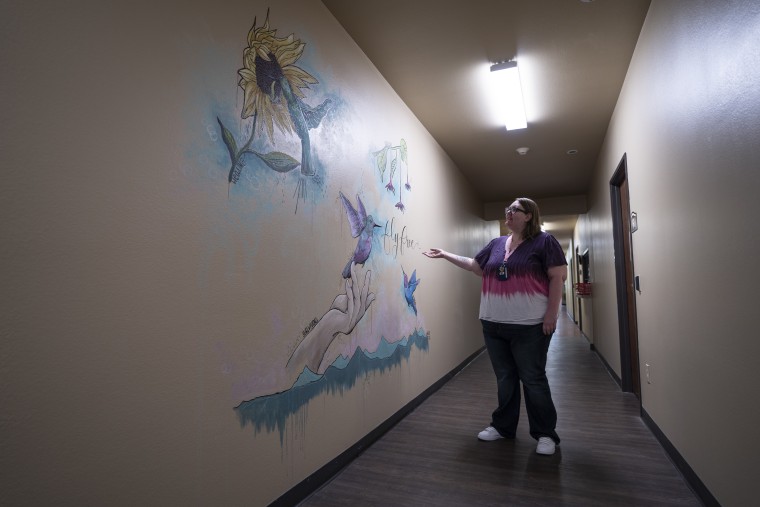
Araujo said that when she's struggling with work-related challenges, she often reaches out to colleagues and her mother, who is now the nighttime advocate at Noah Project. She said she also sees a counselor and attends training on secondary trauma to prevent burnout.
"There have been a couple of times where I go home, and I feel very defeated because we get three or four really high-need clients, and even if we do everything we can, it doesn't feel like it's enough," Araujo said. "I have to remind myself that I am just a person. I am not a miracle worker. I am doing what I can."
